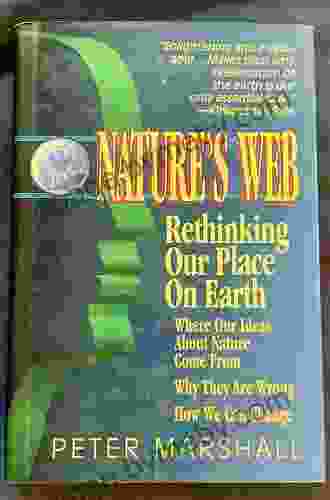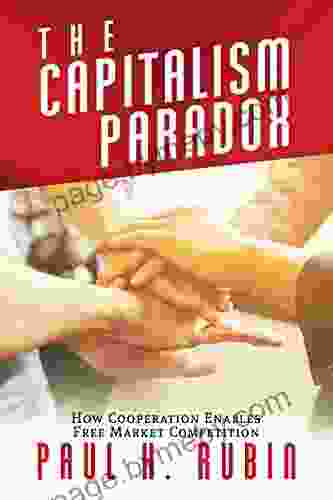The Power of Cooperation: How it Fuels Free Market Competition

In the realm of economics, the prevailing narrative often portrays competition as a solitary pursuit, where businesses strive to outmaneuver each other for dominance. However, a closer examination reveals a hidden force that plays a crucial role in shaping the dynamics of free market competition: cooperation.
4.5 out of 5
| Language | : | English |
| File size | : | 2487 KB |
| Text-to-Speech | : | Enabled |
| Screen Reader | : | Supported |
| Enhanced typesetting | : | Enabled |
| Word Wise | : | Enabled |
| Print length | : | 194 pages |
| Lending | : | Enabled |
Contrary to popular belief, cooperation is not the antithesis of competition; rather, it is its catalyst. When businesses engage in cooperative endeavors, they create an environment that fosters innovation, growth, and ultimately, a more robust market.
Cooperation in the Marketplace
Cooperation takes many forms in the business world. It can range from simple information sharing to joint ventures and strategic alliances. Here are a few common examples:
- Cross-licensing agreements: Companies may agree to share patents and technologies, allowing them to access a broader range of resources and capabilities.
- Supplier-customer relationships: Businesses often work closely with their suppliers and customers to optimize supply chains, improve product quality, and reduce costs.
- Industry alliances: Companies within the same industry may form alliances to promote research and development, set industry standards, and advocate for their interests.
Benefits of Cooperation
The benefits of cooperation in the marketplace are numerous and far-reaching. By working together, businesses can:
1. Enhance Innovation
When businesses share ideas and resources, they create a pool of knowledge that stimulates innovation. Cooperative research and development efforts can lead to groundbreaking technologies, products, and processes.
2. Increase Efficiency
Cooperation can streamline operations and reduce costs. For example, supply chain collaborations can optimize inventory management and minimize transportation expenses.
3. Expand Market Reach
Partnerships and alliances can help businesses access new markets, distribution channels, and customer segments.
4. Reduce Uncertainty
Information sharing and collaboration can reduce uncertainty in the marketplace, enabling businesses to make more informed decisions and plan for the future.
Types of Cooperation
The type of cooperation that is most effective depends on the specific industry and business goals. Here are a few common types of cooperative agreements:
- Joint ventures: Businesses create a new entity to pursue a specific project or venture.
- Strategic alliances: Companies form partnerships to achieve common objectives, while maintaining their independence.
- Consortia: Groups of businesses collaborate on a specific project or issue.
- Networks: Businesses connect and exchange information through informal networks.
Challenges of Cooperation
While cooperation offers significant benefits, it is not without challenges. Some potential hurdles include:
- Antitrust concerns: Cooperation can raise antitrust concerns, especially if it leads to collusion or market dominance.
- Trust issues: Building trust and overcoming competitive instincts can be challenging.
- Coordination difficulties: Coordinating efforts among multiple partners can be complex and time-consuming.
The power of cooperation is often underestimated in the context of free market competition. By working together, businesses can unleash innovation, enhance efficiency, expand market reach, and reduce uncertainty. While cooperation may not be as visible as fierce competition, it plays a vital role in driving economic growth and prosperity.
As the business landscape continues to evolve, the ability to cooperate effectively will become increasingly important. Businesses that embrace the power of cooperation will be well-positioned to thrive in the competitive marketplaces of the future.
4.5 out of 5
| Language | : | English |
| File size | : | 2487 KB |
| Text-to-Speech | : | Enabled |
| Screen Reader | : | Supported |
| Enhanced typesetting | : | Enabled |
| Word Wise | : | Enabled |
| Print length | : | 194 pages |
| Lending | : | Enabled |
Do you want to contribute by writing guest posts on this blog?
Please contact us and send us a resume of previous articles that you have written.
 Book
Book Novel
Novel Page
Page Chapter
Chapter Text
Text Story
Story Genre
Genre Reader
Reader Library
Library Paperback
Paperback E-book
E-book Magazine
Magazine Newspaper
Newspaper Paragraph
Paragraph Sentence
Sentence Bookmark
Bookmark Shelf
Shelf Glossary
Glossary Bibliography
Bibliography Foreword
Foreword Preface
Preface Synopsis
Synopsis Annotation
Annotation Footnote
Footnote Manuscript
Manuscript Scroll
Scroll Codex
Codex Tome
Tome Bestseller
Bestseller Classics
Classics Library card
Library card Narrative
Narrative Biography
Biography Autobiography
Autobiography Memoir
Memoir Reference
Reference Encyclopedia
Encyclopedia William Bennet Stevenson
William Bennet Stevenson Patrick Regan
Patrick Regan Renee Rose
Renee Rose Tara Lazar
Tara Lazar Victoria Simcox
Victoria Simcox Wee Society
Wee Society Sylwia Skbooks
Sylwia Skbooks Victor Manibo
Victor Manibo Naima Coster
Naima Coster Reid Sheftall M D
Reid Sheftall M D Mindy Avra Portnoy
Mindy Avra Portnoy Penny Le Couteur
Penny Le Couteur Scientia Media Group
Scientia Media Group Stephanie Soebbing
Stephanie Soebbing Paul Kendall
Paul Kendall Rafael Gordillo Naranjo
Rafael Gordillo Naranjo Mo Gawdat
Mo Gawdat T E Lawrence
T E Lawrence Shauna L Shapiro
Shauna L Shapiro Molly Bradley Hudgens
Molly Bradley Hudgens
Light bulbAdvertise smarter! Our strategic ad space ensures maximum exposure. Reserve your spot today!

 Thomas PynchonUnleash Your Wildest Adventures: The Ultimate Smart Travel Guide for Nature...
Thomas PynchonUnleash Your Wildest Adventures: The Ultimate Smart Travel Guide for Nature... Alec HayesFollow ·19.2k
Alec HayesFollow ·19.2k Mario SimmonsFollow ·10.4k
Mario SimmonsFollow ·10.4k Edison MitchellFollow ·4.1k
Edison MitchellFollow ·4.1k Marvin HayesFollow ·14.8k
Marvin HayesFollow ·14.8k Ricky BellFollow ·12.5k
Ricky BellFollow ·12.5k Darrell PowellFollow ·4.6k
Darrell PowellFollow ·4.6k Ralph TurnerFollow ·16.3k
Ralph TurnerFollow ·16.3k Ralph EllisonFollow ·8.9k
Ralph EllisonFollow ·8.9k

 Isaac Bell
Isaac BellReminiscences of a Hebridean School Master, 1890-1913: A...
Immerse Yourself in a Captivating Memoir of...

 Blake Kennedy
Blake KennedyMaster the Art of True Connection in the Digital Realm:...
In an era marked by the omnipresence of...

 Terry Bell
Terry BellEleven Poems Printed With Three Well Designed Fonts For...
This book is a...

 Jacob Hayes
Jacob HayesThe Interwoven Symphony of Nature: Unraveling Our...
: In the tapestry of life, humanity's...

 Jamie Blair
Jamie BlairEscape to Sunrise Cottage
A Sanctuary of Tranquility...
4.5 out of 5
| Language | : | English |
| File size | : | 2487 KB |
| Text-to-Speech | : | Enabled |
| Screen Reader | : | Supported |
| Enhanced typesetting | : | Enabled |
| Word Wise | : | Enabled |
| Print length | : | 194 pages |
| Lending | : | Enabled |












